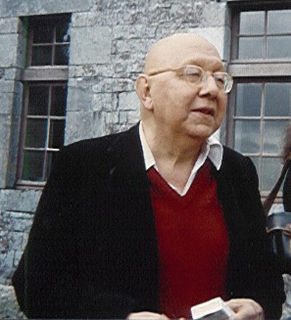A Quote by George Weigel
History is driven, over the long haul, by culture - by what men and women honor, cherish, and worship; by what societies deem to be true and good, and by the expressions they give to those convictions in language, literature, and the arts; by what individuals and societies are willing to stake their lives on.
Related Quotes
The thing about frontiers, it allows the individuals who are best, whether they're men or women or minorities or whatever, to step to the top. So in traditional societies, old world societies, in the United Kingdom if you would; if you were born into the right stratus, the right class, you had the ability to succeed.
We view Sufism not as an ideology that molds people to the right way of belief or action, but as an art or science that can exert a beneficial influence on individuals and societies, in accordance with the needs of those individuals and societies ... Sufi study and development gives one capacities one did not have before.
For most of history, war has been a more or less functional institution, providing benefits for those societies that were good at it, although the cost in money, in lives, and in suffering was always significant. Only in the past century have large numbers of people begun to question the basic assumption of civilized societies that war is inevitable and often useful.
We see that there are two different kinds of...societies: (a) parasitic societies and (b) producing societies. The former are those which live from hunting, fishing, or merely gleaning. By their economic activities they do not increase, but rather decrease, the amount of wealth in the world. The second kind of societies, producing societies, live by agricultural and pastoral activities. By these activities they seek to increase the amount of wealth in the world.
We usually forget that apart from making a living on this earth, human beings live in societies and these societies have cultures. It is only through having cultures that mankind on this earth has an ordered and meaningful life. Music and drama are two of the many important manifestation of a culture. They are important because they represent the expressions emanating from the power of human artistic creativity
In a cross-cultural study of 173 societies (by Herbert Barry and L. M. Paxson of the University of Pittsburgh) 76 societies typically had mother and infant sharing a bed; in 42 societies they shared a room but not a bed; and in the remaining 55 societies they shared a room with a bed unspecified. There were no societies in which infants routinely slept in a separate room.
History will also give occasion to expatiate on the advantage of civil orders and constitutions; how men and their properties are protected by joining in societies and establishing government; their industry encouraged and rewarded, arts invented, and life made more comfortable; the advantages of liberty, mischiefs of licentiousness, benefits arising from good laws and a due execution of justice. Thus may the first principles of sound politics be fixed in the minds of youth.
While all societies make their own imaginaries (institutions, laws, traditions, beliefs and behaviors), autonomous societies are those that their members are aware of this fact, and explicitly self-institute (????-?????????). In contrast, the members of heteronomous societies attribute their imaginaries to some extra-social authority (i.e. God, ancestors, historical necessity)



































